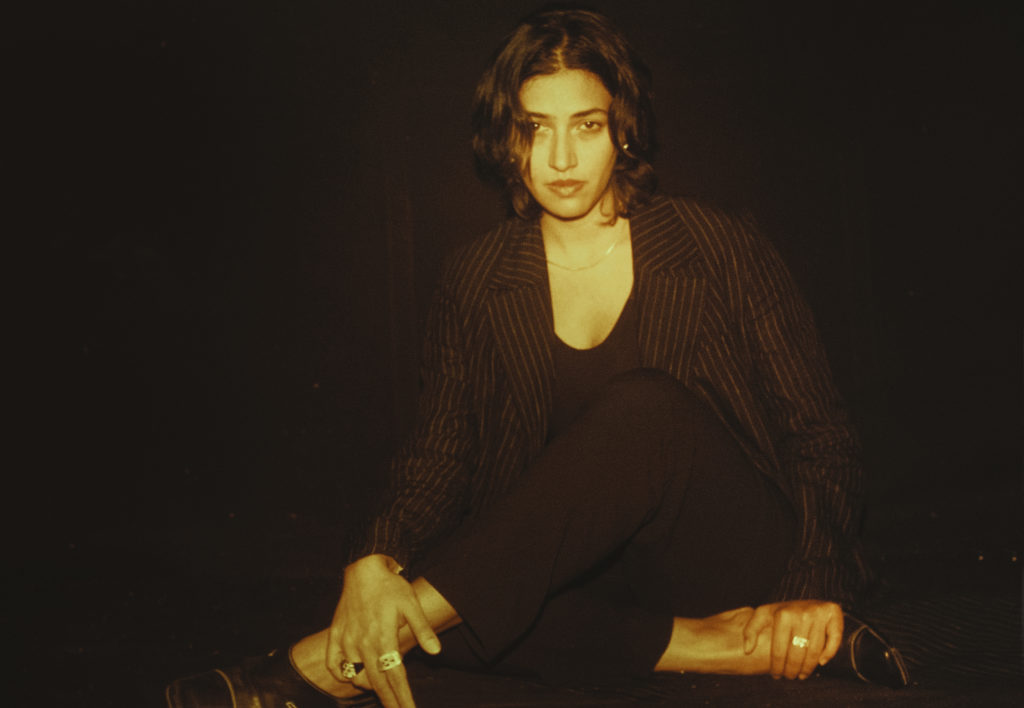
Yantan Ministry is an experimental composer, live musician and DJ. Recognisable by their mercuriality and eclectic movements, their work permeates a keen interest in ambiguity, obfuscation and the emotional body; an ever present suggestion of their inclinations being motivated by stepping outside the frame to highlight a riddle, to create feelingly and work within mythical space.
What is your first music-related memory?
I remember it clearly. It was three days before my first food memory (dry wall) and several months after my earliest shock (birth), about the same time as my first killing (a slug).
My dad played a lot of music at home – my earliest memories are either of Joni Mitchell or Tracy Chapman, or The Weather Report. All the stuff from back then is wrapped around my spine.
My first memories of music are also tied to looking at the album covers while the music played, and being – for example – terrified and crazy excited by the tomato head person on a hammock on Little Feat’s Waiting for Columbus. It was so scary I knew where it sat, hidden among the other records, and it called to me in some eldritch, enticing way.
At what moment did you realize that music is something you fully want to dedicate yourself to?
I’ve never been someone who decides on something one day and makes a bee-line for it. I kind of slip into things via a process of several vague and inscrutable micro movements and reactions, needs and desires. Often half hidden from myself, sometimes clear as day. I have no idea but also all the idea. Music just turned out to be the place I felt most free, and it was the most fluid way for me to touch upon certain things and be around people I like.
Your work has an interest in “Ambiguity, obfuscation and the emotional body”. Can you elaborate?
I enjoy facing contradictions and tension as ways to uncover the ambiguity of being, and maybe recover some inalienable sense of existence outside of governance and prescription. Maybe this itself is a contradiction to a lot of things which are necessary and which I end up doing. What I mean by having an interest in this is that making music, listening to music, or talking with a friend about music is a way through which I feel myself emerge and submerge within my environment, memories, movements, affinities, and desires – and those of others.
All of it through music, which in itself is simply a thing which I feel both transcends so much and is also embedded in the grain. In itself it carries those non-understandable corners and untameable desires and pulls. The grain itself is both a clear place and the unnameable, desiring the other. I have no interest in understanding any of it, just being close to it or feeling it. I’m devoted to a bunch of things and maybe this is how I pray/practice.
I feel “obfuscation” risks being interpreted as a way to withhold communication, and present wilful, causeless deception or messiness. What I mean by obfuscation is more of a method with strong ties to what results from it – the one and same thing, linked to what I mentioned above – a way to create space. If I’m coming off unclear it’s because those three things I have in my press text are there to give a vague notion, but I actually think it’s up to my work and life to try and make nonsense of them.
What would you say is the most important element of your sound work?
I’d say there isn’t an element, rather an attempt to keep all elements fluid and recognise their weights and characteristics – being aware of preconditions while not being dictated by them. It’s the same attempt that isn’t based on thought or planning, but imagining constructively. It’s a bit like how love works for me perhaps.
What are you currently working on?
I’m working on new music which focuses on performance and live settings, and continuing on what I’ve been prodding so far. I’m hoping to collaborate more and more. I’m also trying to get back into throwing events with friends and looking into how to inhabit and create space in ways that don’t feel cynical. I need spirit and so do many around me – so even if it’s just conversations, I’m enjoying having them.
Interview Lucia Udvardyova